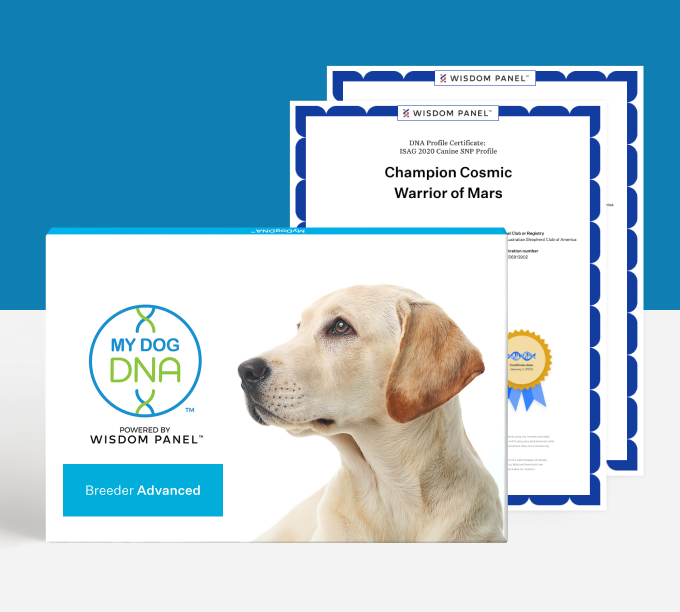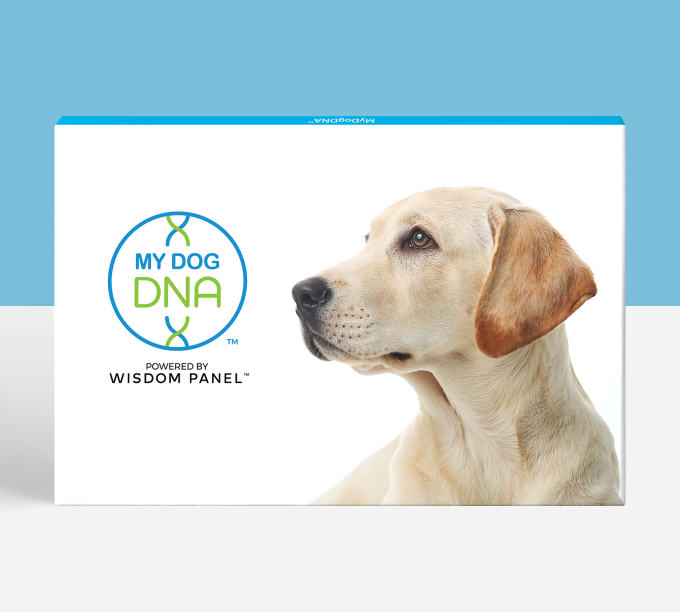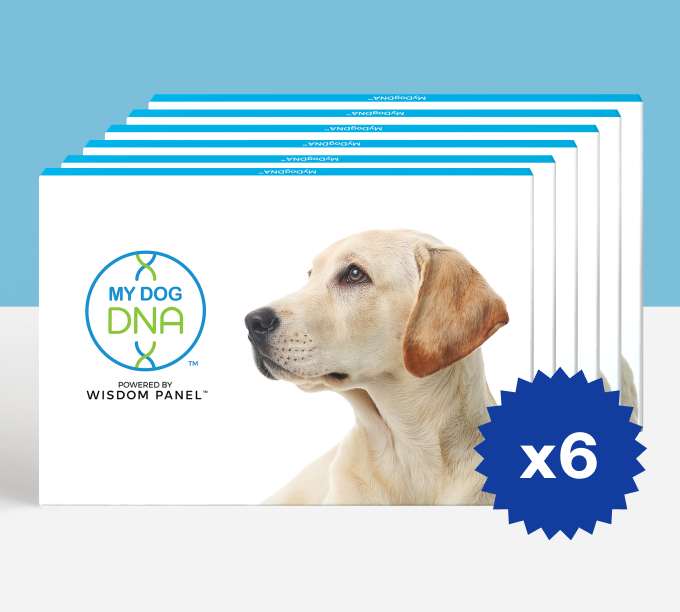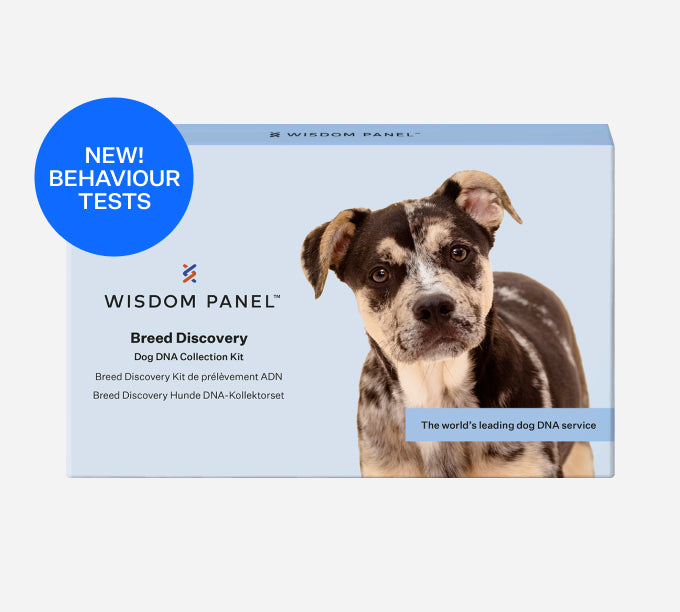Introducing a new genetic test for canine atopic dermatitis
Wisdom Panel™ has discovered a genetic risk factor for canine atopic dermatitis (cAD), validated in the French Bulldog and Boxer breeds. cAD (or atopy) is an allergic skin condition associated with chronic itching and secondary infections in dogs. Estimates suggest that cAD affects up to 10-30% of dogs. At this time, there is no known cure for this condition.
cAD is a complex disorder caused by a combination of genetic and environmental factors. You can read more about the condition here. Wisdom Panel’s™ discovery is the first compelling genetic risk factor identified for cAD that can help inform breeding decisions to reduce its frequency in select breeds.

Where can I learn more about this research?
Our team of experts hosted a webinar entitled “A New DNA test for risk of atopic dermatitis in French Bulldogs and Boxers.”
Wisdom Panel scientists including Dr. Oliver Forman, Canine Genetics Centre researcher Dr. Cathryn Mellersh, and veterinarian Dr. Casey Knox will discuss this new genetic link to canine atopic dermatitis. Learn about allergic skin disease in dogs with this groundbreaking research, and how to apply new testing responsibly in your breeding programme.
View the webinar here.

Where can I find the genetic test?
A special early offering of the test is now available through Canine Genetic Testing at the University of Cambridge (https://www.cagt.co.uk), and is bundled with MyDogDNA™ for the purposes of protecting genetic diversity. Testing is only recommended for Boxer and French Bulldogs at this time. Breeders and owners may purchase MyDogDNA™ and the new atopy risk marker for £108.00 incl. VAT here:
https://www.cagt.co.uk/product/canine-atopic-dermatitis/
With each order, breeders will receive two kits — one test for the atopy variant SLAMF1 and one MyDogDNA™ test. The two test reports will be issued separately as results become available.
What are the signs of cAD?
The main feature of CAD is itchy skin, which usually starts before 3 years of age and can have a seasonal or year-round pattern. Itch in dogs can present as excessive scratching, licking, nibbling, chewing, rubbing, and head shaking. In cAD, this itch is usually focused on the underside of the tummy, armpits, paws, ears, and face. Over time, as the itch persists, other changes to the skin can be seen. These changes include redness, spots, hair loss, scabs, and darkening and thickening of the skin. These skin changes can also predispose dogs to secondary bacterial and yeast infections, which can increase and continue the itch-scratch cycle. cAD is a chronic skin disease which has no cure and relies on life-long management to improve the quality of life for these dogs. The key signs of atopy are:
● Increased itching, licking, scratching, chewing, rubbing, or scooting
● Head shaking
● Reddish-brown saliva stains on fur, often around the feet
● Red skin or scabs on paws, armpits, joints, belly, and face
● Foul odour to skin or ears, which may indicate a secondary infection
Atopy affects the quality of a dog’s life and can even cause behavioural changes due to lost sleep, discomfort, or pain. The recurring veterinary visits, prescription diets, bathing, and treatments necessary to manage the condition are often lifelong and expensive, and can negatively affect the bond pet parents have with their dogs.
About the research
Wisdom Panel’s research team has identified a variant in SLAMF1, an immune system-associated gene, that is associated with increased likelihood of a dog developing atopic dermatitis. The variant has been found in many dog breeds and is currently validated for DNA testing in the French Bulldog and Boxer breeds.
Based on our current estimate, the frequency of the SLAMF1 variant is high in these breeds, at 50% in French Bulldogs and 40% in Boxers. While this is a high frequency for a disease-associated variant, it presents an opportunity for a greater impact of DNA testing on a population, relative to a variant that has a very low frequency. Taking the conservative estimate of 10% of dogs suffering from cAD and a modest estimate of risk, testing and informed breeding could reduce this value to 3%, with potentially thousands of dogs benefitting from a better quality of life. The impact may in fact be even greater in the French Bulldog breed, with Agria Insurance Data indicating that the relative risk of cAD for French Bulldogs is 5-fold above average for all breeds.

An illustration of how DNA testing can potentially reduce the number of cAD affected dogs (orange) in a population over time.
Why maintaining genetic diversity matters
The frequency of the SLAMF1 variant is very high in both the French Bulldog and Boxer breeds. While there is potentially a high gain in breeding away from the variant to reduce the incidence of cAD, there is a risk that genetic diversity may be significantly reduced if breeders attempt to eliminate the variant too quickly. It is therefore important to consider breed-wide diversity in an individual kennel’s breeding programme.
Diversity is important for both maintaining a healthy population and individual health, as higher diversity is associated with longer lifespan, lower risk of genetic disease in general, lower puppy mortality, and higher fertility in breeding dogs.

Why should I use the test result in my breeding programme?
We recommend that initially all dogs with a higher-than-average diversity for the breed are considered for breeding purposes, even if they have two copies (homozygous) of the SLAMF1 variant. Dogs that are clear of the variant should be considered even if they have lower-than-average diversity. If a breeder is retaining a puppy to continue the breeding line, and all other factors are equal, the puppy with a lower copy number of SLAMF1 should be prioritised. The aim is to gradually produce dogs in future generations that are clear of the SLAMF1 variant to protect genetic diversity.
For breeders who choose to upgrade to MyDogDNA™ Advanced, we recommend using the Litter Predict feature (coming soon in 2025) to assist with breeding decisions. When using Litter Predict, we recommend that the diversity of the resulting litter is predicted to be equal or greater than the diversity of the Sire and Dam. Further information about the Litter Predict feature will be available soon.
What are the risks in carrying the variant?
The SLAMF1 variant has an additive effect, meaning one copy causes a modest increase in risk and two copies have a more pronounced increase in risk. Estimated increase in odds of developing cAD in the Boxer and French Bulldog breeds are as follows:

Stated differently, Boxers with one copy of the SLAMF1 variant are 2.75 times more likely to develop cAD than a Boxer without any copies of the variant, and a Boxer with two copies is 7.56 times more likely. French Bulldogs with one copy of the SLAMF1 variant are 1.89 times more likely to develop cAD than a French Bulldog without any copies of the variant, and a French Bulldog with two copies is 3.57 times more likely.
FAQs:
Are there additional benefits to MyDogDNA™ testing?
Yes, with the MyDogDNA™ test users will receive results for over 270 genetic diseases, 50 trait tests, and genetic diversity.
Where can I buy a test?
The test can be purchased through the University of Cambridge. This is to allow breeders early access to the SLAMF1 test, as the test is not available through MyDogDNA™ at this time. However, we recommend that the test is purchased with MyDogDNA™ to monitor genetic diversity.
I am outside of the UK, can I purchase a test?
International shipping is offered to most destinations worldwide. However, please note that we do not currently ship to Russia or Belarus. A delivery fee applies to all international orders.
Will the SLAMF1 test be available in MyDogDNA™ in the future?
Yes, the test will be included in MyDogDNA™ in the future, however it is unlikely to be available until 2026 at the earliest.
Will my dog develop cAD if they have the variant?
Dogs with any copies of the SLAMF1 variant will have an increased likelihood of developing cAD, but not all dogs at risk will develop the disease, as it is a complex disorder and not all risk factors are known.
In our testing of 36 cAD free (unaffected) Boxers, 61% with copies of the variant did not have signs of cAD. However, in our group of dogs with cAD, 85 % had at least one copy of the variant.
In our testing of 23 cAD-free French Bulldogs, 65% with copies of the variant did not have signs of cAD. However, in our group of dogs with cAD, 82% had at least one copy of the variant.
My dog has cAD but doesn't have the SLAMF1 variant. Why?
cAD is a complex disease, so even if your dog does not have the SLAMF1 variant, environmental factors such as diet and allergens and other genetic factors are likely contributing to your dog’s risk of developing cAD.
How does the testing process work?
Ordering
Test kits can be ordered from www.cagt.co.uk at a cost of £108.
You will receive two kits:
● One swab kit for testing for the SLAMF1 variant.
● One swab kit (2 swabs) for the MyDogDNA™ test.
Activation
Please activate your CAGT swab kit at www.cagt.co.uk/activate/
Please activate your MyDogDNA™ swab kit as directed at www.wisdompanel.com/activate
Swabbing
Swab your dog per instructions included with the kit. Return all swabs to:
Canine Genetic Testing
Department of Veterinary Medicine,
University of Cambridge,
Madingley Road,
Cambridge
CB3 0ES
How do I receive results?
You will receive your SLAMF1 results in an email and notification that your MyDogDNA™ results are ready to view online. Results will likely be ready at different times.
The SLAMF1 results will be delivered in an email as a PDF.
The MyDogDNA™ results will be available as an online report, with an option to download a PDF.
What if my sample fails?
Very occasionally a swab will fail either because of insufficient DNA on the swab or for technical reasons. You will be able to order a replacement kit directly from CAGT for SLAMF1 or from Wisdom Panel™ for the MyDogDNA™ test.








